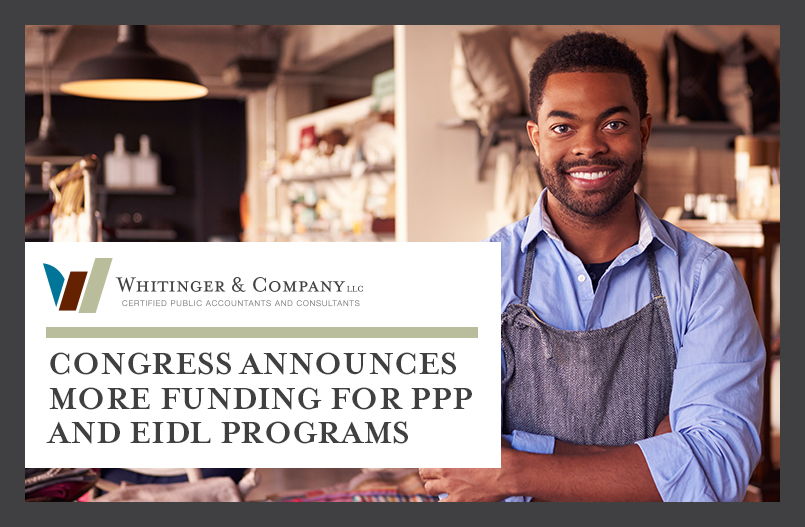On Thursday, the House passed a $484 billion bill providing an additional $310 billion in funding for PPP loans and an additional $10 billion in funding for Economic Injury Disaster Loans. The bill was passed by the Senate on Tuesday and President Trump is expected to sign the bill today, Friday, April 24, 2020. The bill also includes an additional $75 billion for reimbursements to hospitals and health care providers to support the need for coronavirus-related expenses and lost revenue. Funding of $25 billion for coronavirus testing expenses also is included.
The new bill makes a few modifications to the original PPP loan program. One change is a $60 billion set-aside to ensure smaller financial institutions have access to PPP funds for their customers.
Despite concerns that the PPP loan funds were being used by publicly traded companies, large businesses, and/or businesses that did not have a real need, the new bill does not address any of those issues. However, the Treasury and SBA updated the PPP FAQ last night to include the following:
Question: Do businesses owned by large companies with adequate sources of liquidity to support the business’s ongoing operations qualify for a PPP loan?
Answer: In addition to reviewing applicable affiliation rules to determine eligibility, all borrowers must assess their economic need for a PPP loan under the standard established by the CARES Act and the PPP regulations at the time of the loan application. Although the CARES Act suspends the ordinary requirement that borrowers must be unable to obtain credit elsewhere (as defined in section 3(h) of the Small Business Act), borrowers still must certify in good faith that their PPP loan request is necessary. Specifically, before submitting a PPP application, all borrowers should review carefully the required certification that “current economic uncertainty makes this loan request necessary to support the ongoing operations of the Applicant.” Borrowers must make this certification in good faith, taking into account their current business activity and their ability to access other sources of liquidity sufficient to support their ongoing operations in a manner that is not significantly detrimental to the business. For example, it is unlikely that a public company with substantial market value and access to capital markets will be able to make the required certification in good faith, and such a company should be prepared to demonstrate to SBA, upon request, the basis for its certification.
Lenders may rely on a borrower’s certification regarding the necessity of the loan request. Any borrower that applied for a PPP loan prior to the issuance of this guidance and repays the loan in full by May 7, 2020, will be deemed by SBA to have made the required certification in good faith.
It will be worth monitoring how the Treasury and SBA ultimately interpret “necessary to support the ongoing operations of the Applicant” and which companies they target. The target now is clearly the publicly traded companies. While several publicly traded companies have agreed to return the funds, many others are indicating they plan to keep the funds.
It is not immediately clear how long the $310 billion in new PPP funds would last. The initial $349 billion in PPP funding was exhausted after 12 days, and many banks involved in the program said in statements posted on their PPP webpages that they continued to work on PPP applications even after the SBA stopped accepting them for the first round. Although the SBA is not yet processing new PPP loans, many banks and other financial institutions have begun accepting applications for the second round of funding.
The Whitinger team remains available to you throughout this situation and we have a variety of methods for answering questions and consulting on matters important to you and your organization. Please do not hesitate to reach out if you have questions or would like to discuss these programs further.
We are here and ready to help.



